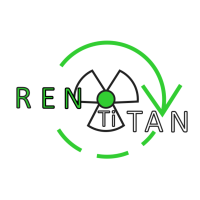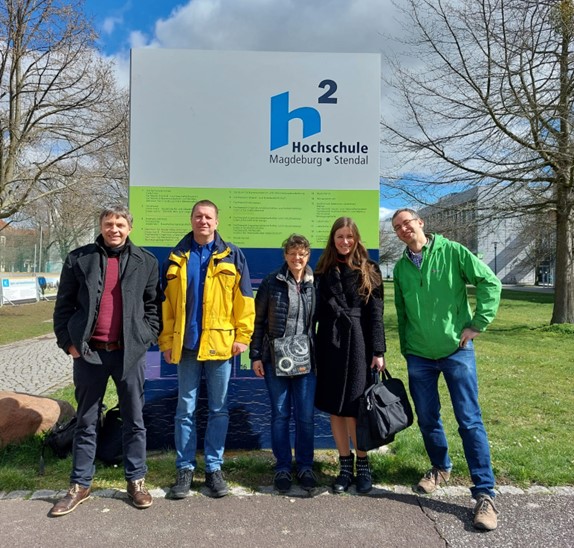03.04.2023 | RENO-TITAN project launched

International project on reuse and disposal options for radioactive residues from titanium placer mining in Vietnam
Titanium is an important metal that is present everywhere as a white pigment in the form of titanium dioxide, is applied as a corrosion-resistant lightweight raw material in the aerospace industry or is used as a body-compatible material for medical implants. However, its mining is accompanied by numerous environmental impacts. For example, titanium compounds are extracted from coastal sands in Vietnam, depleting scarce water resources and causing naturally occurring radioactive elements from minerals to accumulate in residues. The latter has not been properly regulated in Vietnam so far. This is where the practice-oriented research project RENO-TITAN has its starting point:
- What measures are suitable to reduce the general environmental impact of mining activities?
- What are the options for using naturally occurring radioactive materials in residues, so-called NORM residues?
- How should these be evaluated from an ecological, economic, occupational health and safety perspective, and what regulatory framework is necessary?
A particularly interesting aspect is the use of construction sand, which is a scarce commodity in Vietnam and throughout Asia, and residues that are harmless to health and the environment could be used as substitute construction materials, e.g. in road construction. If safe further use is not an option, the question arises as to how the NORM residues can be immobilised and safely disposed of.
The three-year international project with the University of Applied Sciences Magdeburg-Stendal as lead partner started on 1 April 2023 and is funded by the German Federal Ministry of Education and Research (BMBF) under the Client II programme. Other German partners are the Saxon consulting companies WISUTEC / G.E.O.S. Ingenieurgesellschaft mbH Chemnitz and IAF - Radioecology Radeberg. On the Vietnamese side, the Industrial University of Ho Chi Minh City (IUH), the Vietnamese Atomic Energy Institute, the Institute of Public Health and a titanium mining company will participate. The model region is the southern Vietnamese province of Bình Thuận. Prof. Dr. Petra Schneider and Conrad Dorer, a graduate biochemist and newly hired research assistant at the H2, will coordinate the project and provide technical support.

| Voriger Beitrag | Zurück zur Übersicht |

